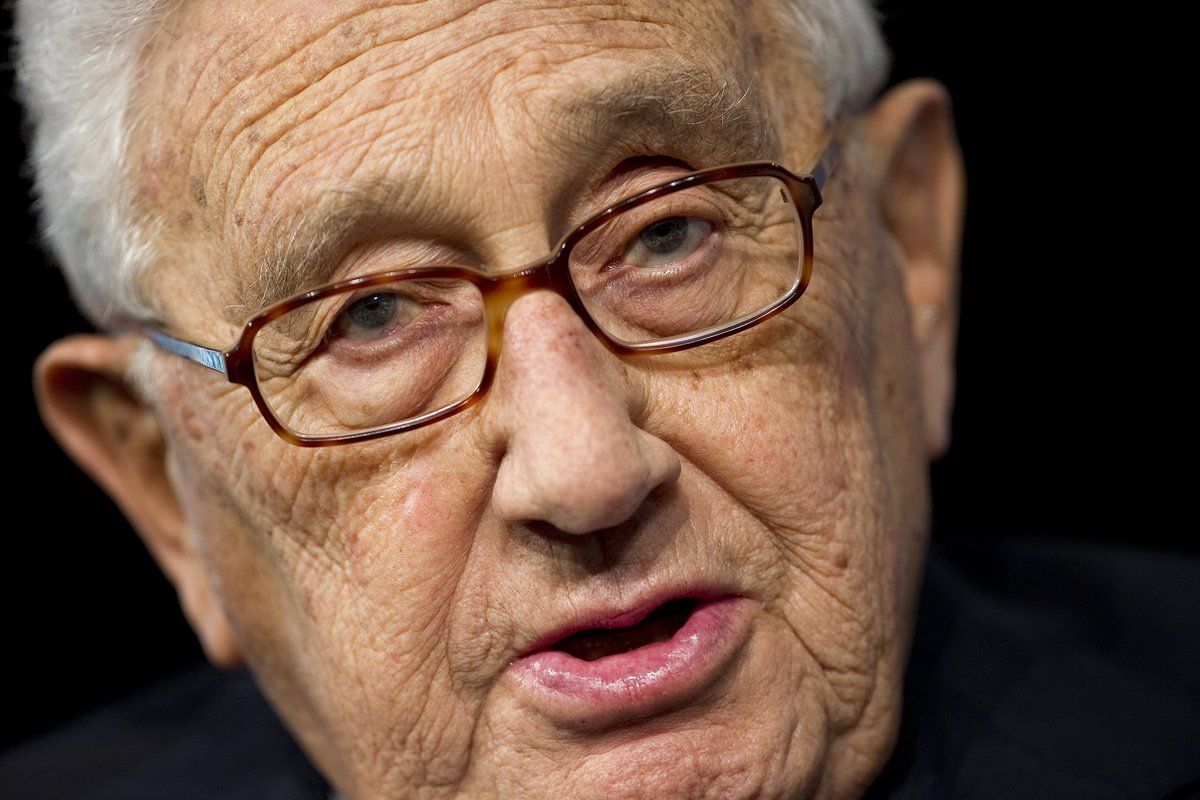
A successful college graduate is, as a general rule, loved by his alma mater. The more prominent he becomes, the more phone calls he receives. If he really makes the big time, there are invitations to host grand dinners, receive honorary degrees, give commencement addresses ... and of course, bestow his name on this or that chair or building (as well as on a very large check).
There are, however, a few painful exceptions to this rule. No graduate of Oxford University did more to restore Britain's postwar economic fortunes than Margaret Thatcher. Yet in 1985 Oxford dons voted against giving the then–prime minister an honorary doctorate degree, an unprecedented snub.
There was a similar—though if anything more bitter—rift between Henry Kissinger and his alma mater, Harvard. But last week, after decades of estrangement, Kissinger returned to the university where he studied and taught. It was an emotional occasion. It was also a fascinating sign of how liberal America is changing.
Full disclosure: I am writing Henry Kissinger's biography. I also happen to teach at Harvard, as he did between 1954 and 1969. And, having been an undergraduate at Oxford when Thatcher was denied her degree, I have long believed that universities should show respect to alums who attain high office, regardless of political disagreements.
In the 1970s and '80s that was not a fashionable view. Back then, liberal academics took pride in repudiating their most successful conservative alumni because they disagreed with their policies. In the case of Oxford, it was Thatcher's cuts in university funding. In the case of Harvard, it was the war in Vietnam. On May 8, 1970, shortly after U.S. forces invaded neighboring Cambodia, a deputation of Kissinger's former colleagues—among them the economist Thomas Schelling—visited Kissinger in Washington.
Kissinger welcomed his "good friends from Harvard University." "No," retorted Schelling, "we're a group of people who have completely lost confidence in the ability of the White House to conduct our foreign policy, and we have come to tell you so." It was the beginning of a schism that would endure for 42 years.
Books like the late Christopher Hitchens's The Trial of Henry Kissinger have perpetuated the notion that the foreign policy of the Nixon administration was uniquely wicked. For liberals of a certain age, it is an article of faith that (for example) Nixon and Kissinger were personally responsible for the coup that overthrew the Chilean Marxist President Salvador Allende. So it was entirely predictable that, if Kissinger ever did return to Harvard, there would be protests against his alleged "war crimes." That's why it was courageous of Harvard President Drew Faust to invite him to an open discussion in the university's Sanders Theater on April 11—and even braver of Kissinger to accept.
Sure enough, just after Kissinger had been introduced and applauded, the protest started. But what was far more extraordinary was the protest against the protest.The protester—singular—was the kind of aging hippie who always shows up at such occasions, gray hair in a ponytail. There was an almost ritualistic quality to his rant, which began: "I am making a citizen's arrest ..." Wearily, the campus cops escorted him off the premises. Then something remarkable happened. Spontaneously, the audience gave Kissinger an ovation—a standing ovation in many cases. The remarkable thing is that most of those clapping were undergraduates.
Welcome to the new generation gap. In the question-and-answer session, the handful of nasty questions came from aging baby boomers. The attitude of the students was diametrically opposite. Many had stood in line for an hour to get in. At the end, they thronged the stage to take photographs with Kissinger and ask for his autograph.
A cynic might put this down to youthful innocence. "To them, Vietnam is just history," I heard a faculty member mutter, "like the Civil War." Yes and no. The 1970s are indeed history if you were born in 1992. But the generation that came of age after 9/11 has a fundamentally different attitude to war than the ponytailed protester. The Obama presidency has shown that liberals, too, must sometimes use force to uphold the nation's security: surging in Afghanistan, helping overthrow a bad regime in Libya, killing foes (among them a U.S. citizen) with drones and hit squads.
Who knows? Maybe one day a successor to Hitchens will denounce the "war crimes" of Barack Obama. But if so, his readers will be in their 60s or older. A younger and wiser generation has welcomed Henry Kissinger back to Harvard. Now it is Oxford's turn to grow up.
Uncommon Knowledge
Newsweek is committed to challenging conventional wisdom and finding connections in the search for common ground.
Newsweek is committed to challenging conventional wisdom and finding connections in the search for common ground.
About the writer
To read how Newsweek uses AI as a newsroom tool, Click here.






